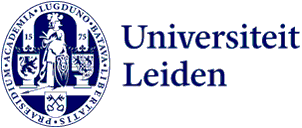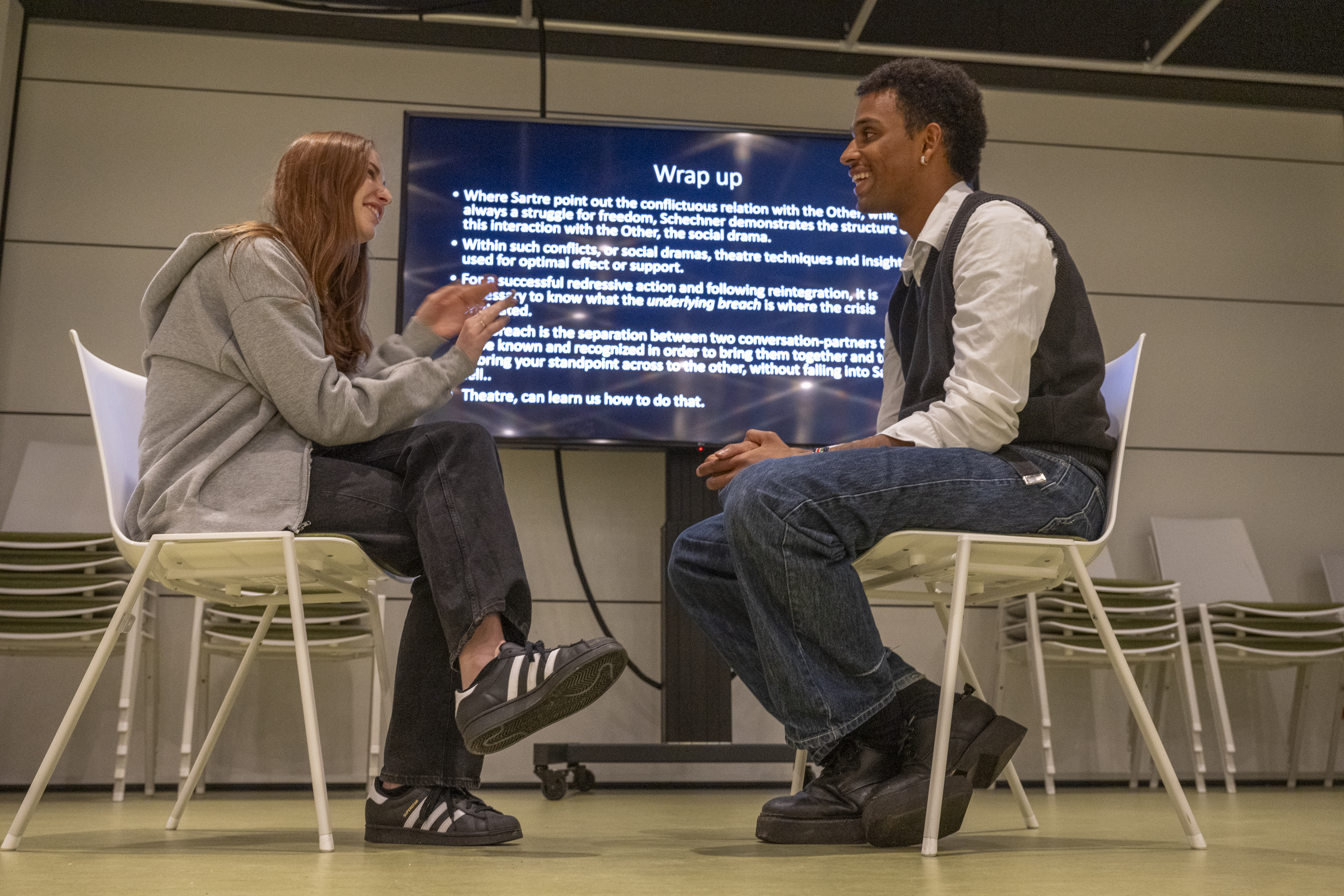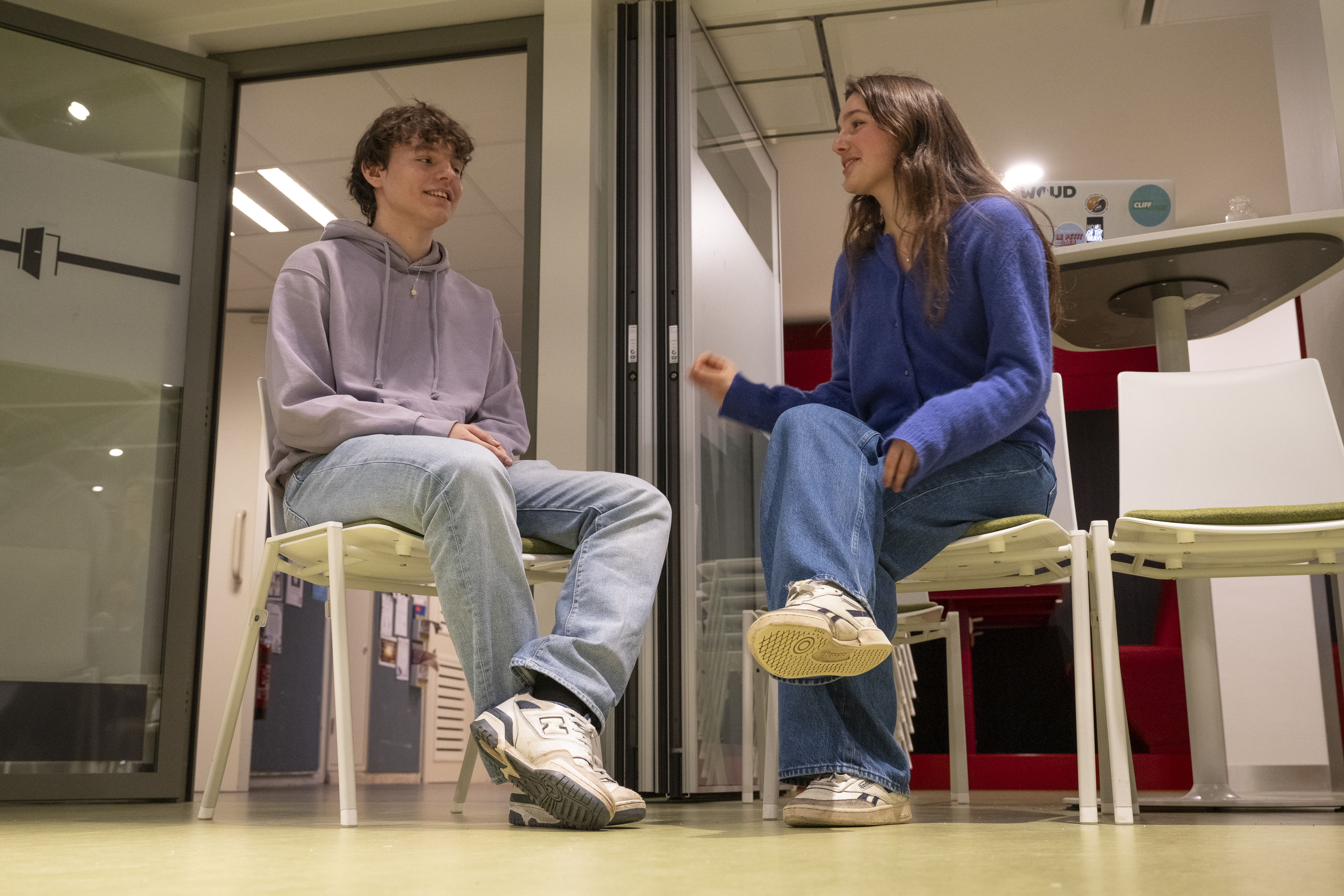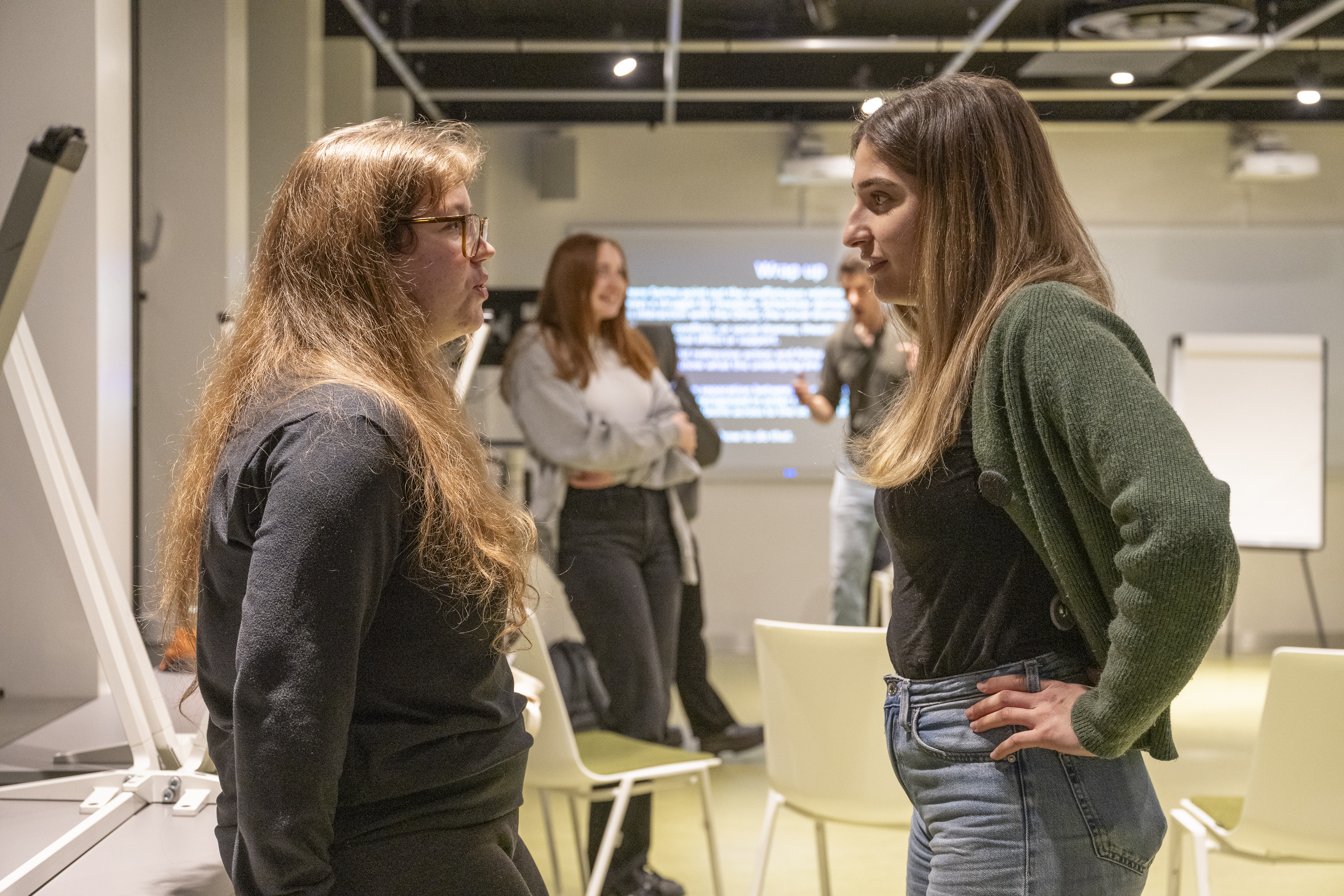
From Jean-Paul Sartre to the power of theatre: resilience can be found everywhere
Students of the Bachelor Honours Class 'Strategies of Resilience' are exposed to a unique educational experience. Through philosophical insights and creative exercises, participants explore what it means to be resilient. ‘I really feel like it helps you develop as a person.’
At first, this class seems like a regular philosophy course. A professor asks students what they thought of the readings, the students give their feedback, and the lecture begins. The teacher, Dolf van der Schoot, introduces the fascinating work of French philosopher Jean-Paul Sartre while the students listen intently.
The philosophy of resilience
The lecture spans approximately thirty minutes, delving into Sartre's perspectives on interpersonal dynamics. Sartre sees an interesting paradox about human interaction: while we rely on others for fulfillment and for being an individual, their presence also constrains our freedom to express ourselves, because it fixes a certain identity upon us.
In this manner, Sartre confronts us with the central challenge of the course: maintaining resilience amidst interpersonal encounters. Van der Schoot then touches upon the ideas of Richard Schechner, who believes that theatre can be a way to solve this root conflict that Sartre identifies.

A change of pace
After his lecture, however, things quickly take a turn. The formal environment of a philosophy lecture is abandoned for an informal theatre workshop by actor Andrew Smith. The students explore how they relate to others, and what impact this has on them. This makes the abstract formulations of Sartre's work more concrete, and makes the students reflect on what they can learn from it.
For example, after a few warm-up exercises, Smith splits the groups up in pairs and asks them to do an acting-exercise. They are asked to play roommates that have a falling out, because one of them wants to move out and live alone. During these simulations of discussions, emotions get riled up, leading to heated arguments. The students communicate about their emotions in ways that they might not do in their daily lives.
Afterwards, the students reflected on their experiences during these theatrical discussions. Some were pleased with the behavior of their "acting persona," while others found it disagreeable. Keeping the ideas of Sartre in mind, the students made realizations about how they felt conflictuous situation and above all, how to stay true to themselves.
'This is what university is all about'
The students, who at this point have only been following the class for two weeks, are enthusiastic. Arsine, a psychology student, is enthralled by the course's themes and the unconventional ways in which they are explored. 'I really felt the need to do something entirely different. Reading the course description really piqued my interest, and it did not disappoint.'
Her fellow students agree: 'The course really takes me out of my regular study patterns. I take what I learn in these classes and apply it to my everyday life, which I don't often do in my regular studies. I really feel like it helps you develop as a person. When you consider it, this holistic development aligns with the essence of university education. The class adds an extra layer that enhances the overall university experience.'
That's what teacher Van der Schoot is aiming for. 'Some will like this theatre experience, others might not. But that's the point, it's different for everyone. Therefore each session offers a different workshop. What matters is that you explore your boundaries and get to know yourself better.'

Text: Stan De Feyter
Photos: Buro JP





